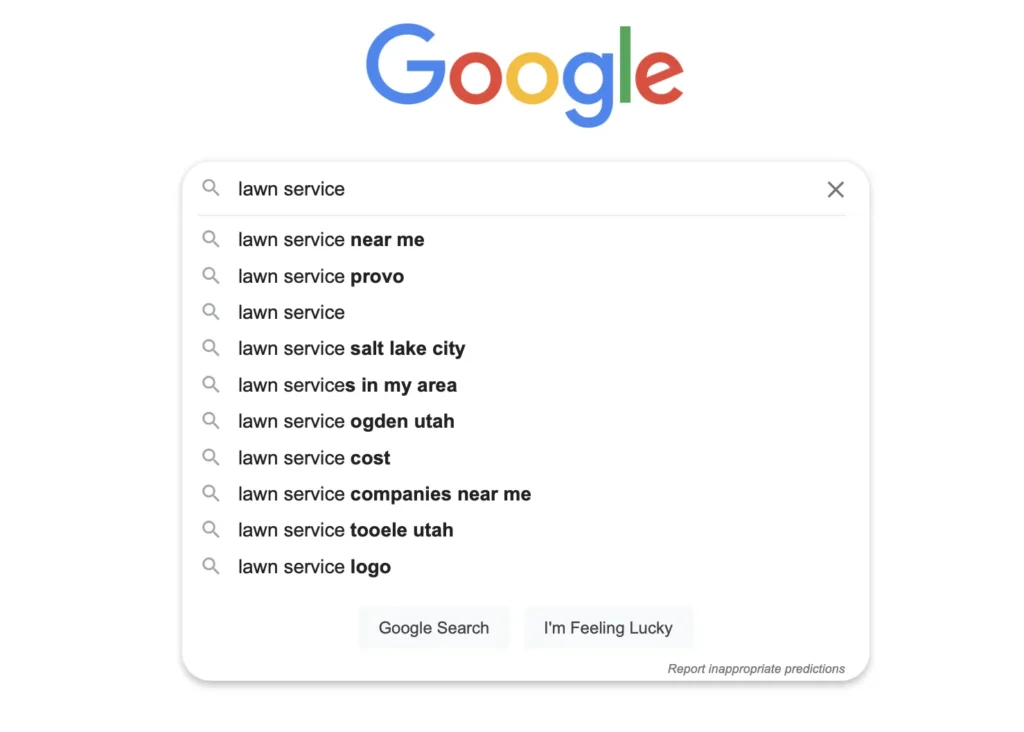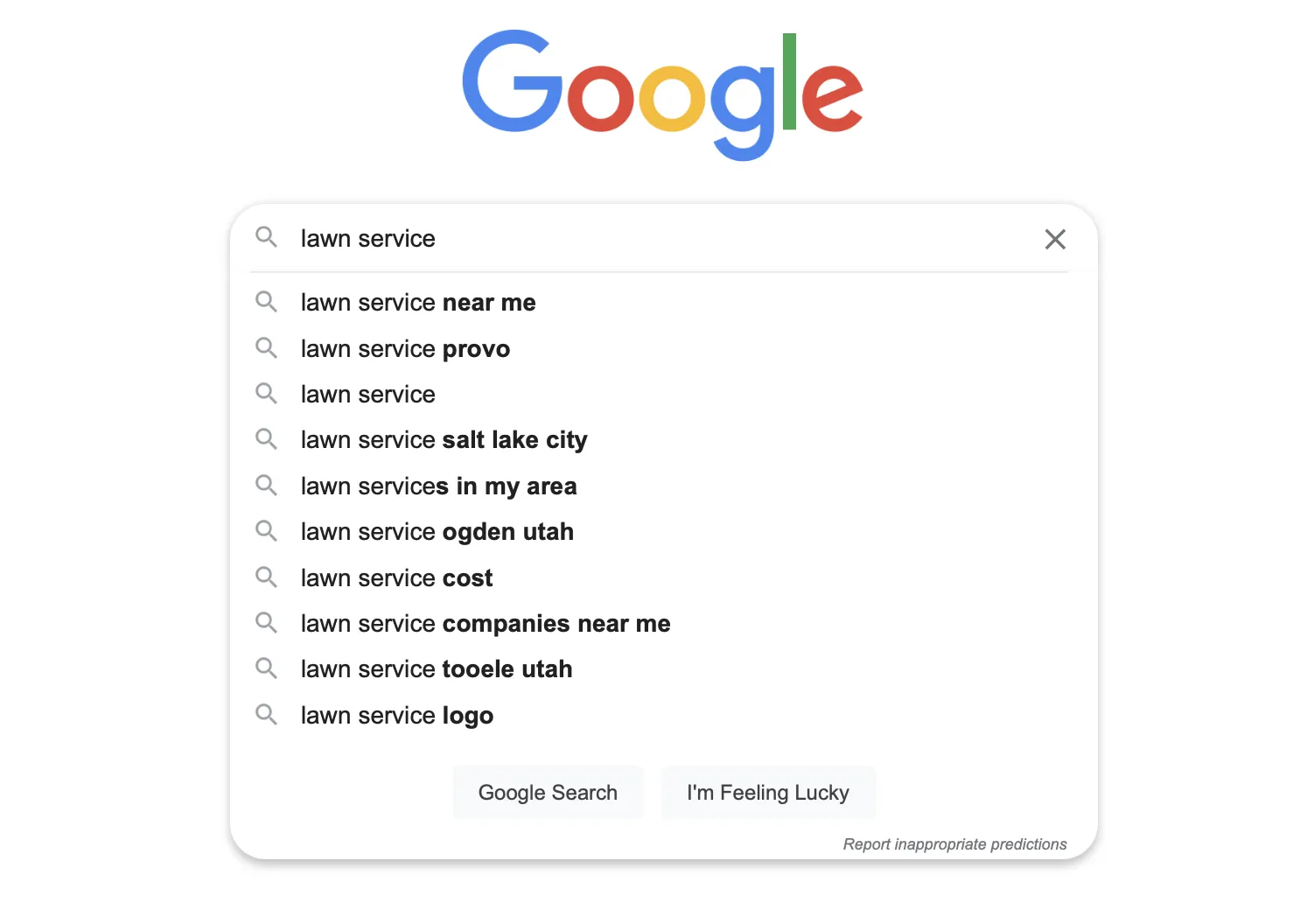How to choose the best keywords for your SEO campaign

Search engine optimization is a crucial component of marketing for businesses of all sizes. There are over 70,000 searches into Google every second of every day. With those kinds of numbers, it’s not a question of whether or not search engines can provide high-quality leads, but a question of how many of those leads your particular business will claim. An effective search engine keyword research is a critical step towards obtaining the best possible results in your SEO campaign.
Search Engine Keyword Research
Studies show that the percentage of consumers who use a search engine on a daily basis has increased every year for the past 16 years. The challenge for business owners is in identifying exactly how consumers in their area are most likely to phrase a search for a particular service or product.
At Red Canyon Media, we understand the value of keyword research in ensuring we provide the best results for our partners’ clients. Here are four important factors to consider when conducting keyword research.
Classify Your Business
Keyword research requires careful pre-planning. The first step is to define your business. Factors that can influence your keyword selection include:
- Industry
- Specialty
- Area
- Competition
Your industry is simply the broadest definition of what your business is. Are you a dentist? Are you a mortgage broker? Are you a plumber? Whatever it may be, your industry will have a great impact on your SEO keywords.
Your specialty goes one level deeper into the same question. If you are a dentist, do you specialize in any particular treatment such as wisdom teeth or root canals? If you are a plumber, do you focus on residential properties or commercial properties? Getting down to a more granular focus of your business will better direct your keyword research.
Your area refers to the geographical area that you service with your business. Do you have a single physical location, or multiple locations? Perhaps you don’t have a physical location at all and can service customers anywhere across the country through digitalization. It should be understood that the bigger your geographical net, the more you should expect to pay for SEO.
The last factor that must be considered is your competition level. Are there hundreds of other businesses seeking to rank for the same keywords as you, or are there just a handful? For example: if you are a lawyer in Washington DC, chances are that you have more competitors than say a yoga instructor in Scottsbluff Nebraska. If your competition is more fierce, it’ll require a higher budget for SEO.
Examine the Analytics
By now, you should have a solid baseline to better guide your keyword research. For example, instead of searching for a term as broad as “painter”, it should look like something along the lines of “home exterior painter in Tulsa Oklahoma”. Of course, some business types will be easier to define than others, but it is important to have at least some kind of elucidation before going into the next step.
From here, you should begin to take an analytical look at how your website has been performing up to date. Google Analytics is a great starting point for tracking and interpreting data related to your website’s traffic.
If you’re willing to pay, you can use tools such as SEMRush or Moz to find out more insights about how often any particular keyword variations are searched and how difficult it may be for your website to achieve higher rankings.
Examine Your Website
The next thing you need to do is examine your own website’s content and landing pages. If you are a dentist who wants to rank on page 1 for “root canal specialist San Jose”, your website should have a dedicated landing page that covers root canals, and it must clarify that you are based in the San Jose area.
While websites will continue to be updated and new content will be added over the entire course of an SEO campaign, if you do not have a dedicated landing page that reflects the keywords you desire to rank for, you will find it difficult to move in the rankings. On the other hand, if your website clearly demonstrates that it deserves to be ranked for the phrases you identified in your search engine keyword research.
Prepare a Budget
Finally, you should have a clear idea of just how much you plan to spend on marketing, and how much you intend to allocate to SEO. Consulting an SEO agency is by far the best way to understand the proper budget you will need to reach your goals. Your budget is determined by analyzing the factors that you used in the first step of this article.
If you are a business in a highly competitive industry or a very large geographical area, you need to be prepared for a higher budget. It is important that you have committed to a solid figure for your maximum budget before you begin keyword research, because it would be a waste of time to research keywords that require too much SEO work than you can afford.
If you are a smaller business with a limited marketing budget, and you are trying to crack into a more competitive field, you should start by researching longtail keywords. These words are often overlooked by bigger companies, but can still provide quality traffic to your website.
Getting Started on Keyword Research
If you are someone who is seeking to increase the traffic on your website, dedicated SEO is critical to your overall success, and effective keyword research is critical to SEO. If you are a digital marketing agency and want to offer your clients SEO services, but need help with fulfillment, you can become a partner of Red Canyon Media and utilize our decades of combined experience to ensure your clients receive the most successful SEO, powered by the best keyword research on the market.



